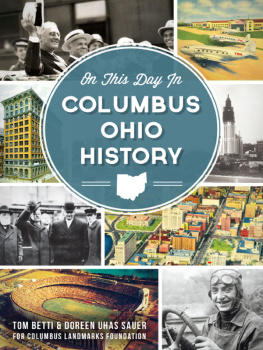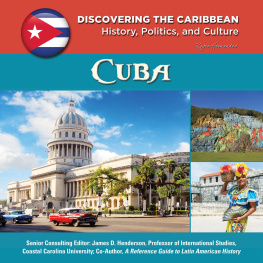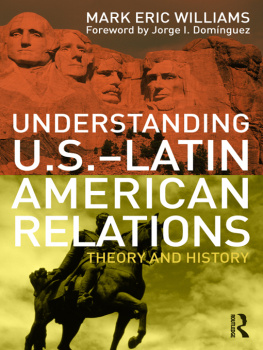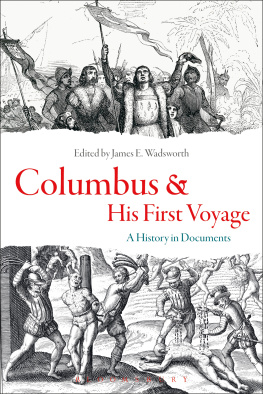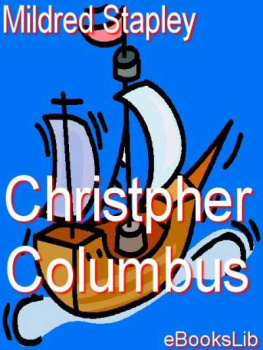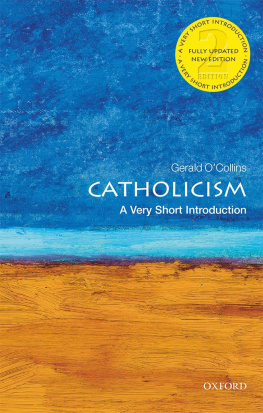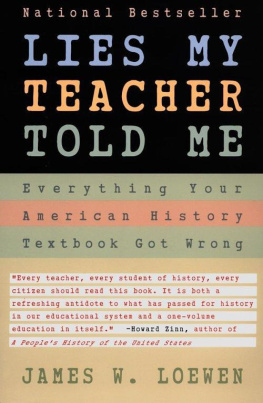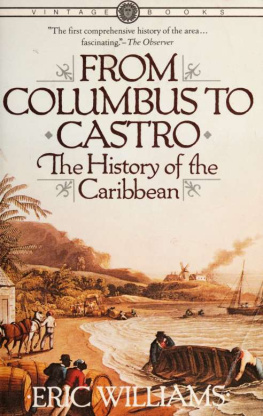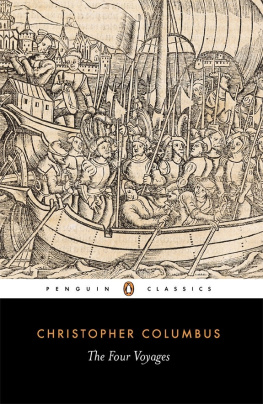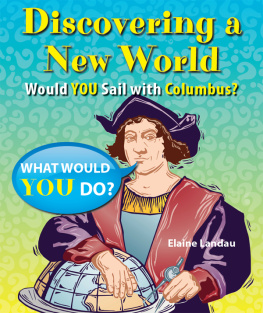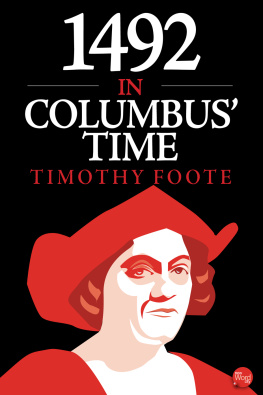Eric Eustace Williams - From Columbus to Castro : the history of the Caribbean, 1492-1969
Here you can read online Eric Eustace Williams - From Columbus to Castro : the history of the Caribbean, 1492-1969 full text of the book (entire story) in english for free. Download pdf and epub, get meaning, cover and reviews about this ebook. year: 1970, publisher: Harper and Row, genre: Romance novel. Description of the work, (preface) as well as reviews are available. Best literature library LitArk.com created for fans of good reading and offers a wide selection of genres:
Romance novel
Science fiction
Adventure
Detective
Science
History
Home and family
Prose
Art
Politics
Computer
Non-fiction
Religion
Business
Children
Humor
Choose a favorite category and find really read worthwhile books. Enjoy immersion in the world of imagination, feel the emotions of the characters or learn something new for yourself, make an fascinating discovery.

- Book:From Columbus to Castro : the history of the Caribbean, 1492-1969
- Author:
- Publisher:Harper and Row
- Genre:
- Year:1970
- Rating:5 / 5
- Favourites:Add to favourites
- Your mark:
- 100
- 1
- 2
- 3
- 4
- 5
From Columbus to Castro : the history of the Caribbean, 1492-1969: summary, description and annotation
We offer to read an annotation, description, summary or preface (depends on what the author of the book "From Columbus to Castro : the history of the Caribbean, 1492-1969" wrote himself). If you haven't found the necessary information about the book — write in the comments, we will try to find it.
From Columbus to Castro : the history of the Caribbean, 1492-1969 — read online for free the complete book (whole text) full work
Below is the text of the book, divided by pages. System saving the place of the last page read, allows you to conveniently read the book "From Columbus to Castro : the history of the Caribbean, 1492-1969" online for free, without having to search again every time where you left off. Put a bookmark, and you can go to the page where you finished reading at any time.
Font size:
Interval:
Bookmark:


From Columbus to Castro: The History of the C aribbean
1492-1969
ERIC WILLIAMS
Copyright 1970 by Eric Williams All rights reserved
Contents
The decisive landmark in the history of the fifteenth century, representing the transition from the Middle Ages to the modern era, was the Portuguese exploration and conquest of the West African coastline.
Up to 1415, when the Portuguese attacked and captured the Moorish stronghold of Ceuta in North Africa, the world, as known to and by the Europeans, was virtually limited to the world known to the Phoenicians, Greeks and Carthaginians. It embraced Europe. Asia Minor and North Africathough Alexander the Great and the Roman legions had left behind memories of India, and Ethiopian civilisation was known to the Greeks. But the Travels of Marco Polo in the thirteenth century whetted the appetite with their descriptions of the Kingdom of Prester John, the empire of the Grand Khan, and the gold of Java and India.
With their conquest of Ceuta, the Portuguese set out on their discovery and exploration of the West African Coast. In 1435 they reached Senegal, in 1443 Cape Bojador, in 1446 Sierra Leone, in 1455 Guinea, and in 1481 the Congo. They stood poised for that superb achievement of Vasco da Gama, the rounding of the Cape of Good Hope, which opened the way to India.
That was Europes dream in the fifteenth century, that was Europes ambitionto reach India and the East. The Crusades had disrupted the normal overland connections, while the Italian maritime States of Venice and Genoa, sitting astride the sea routes, charged heavy tolls. The search for a westward route to India which dominated the fifteenth century had its roots in severely practical considerations. The Estates General of France in 1484 complained that in four years two previous Popes had drained France of more than two millions in gold.
The practical urge to discovery and expansion was also based on a much greater store of theoretical knowledge than had previously been available. The medieval view that the earth was flat could not withstand the Renaissance outlook which had developed renewed interest in a knowledge of geography from the study of Ptolemy, Strabo and Greek geographers who had speculated on the possibility of more easily reaching the Far East by a western voyage from the Pillars of Hercules. In the thirteenth century Roger Bacons scientific method with its subordination of philosophy to mathematics led him to speculate as to the distribution of land and ocean over the globe, to hazard the view that a few days sail westward from Spain would lead to eastern Asia, and to anticipate instruments for navigation, the automobile and the crane. The end of the fifteenth century witnessed the scientific method of Leonardo da Vinci, the representative man of the Renaissance, who anticipated the discovery of the law of gravity, designed the first submarine, and clearly foresaw the aeroplane.
By 1474 Columbus, even then planning his historic voyage, was assured by the great Italian geographer, Pablo Toscanelli, that his intentions were sound: The voyage you wish to undertake is not as difficult as people think; on the contrary, the ships course is certain...
The course was certain if only because the necessary scientific and technological developments were available. Europe had already discovered or borrowed, and learned how to utilise, three decisive innovations which, unknown to or unutilised by the ancients, changed the whole face of the then known world. The first of these was printing; the second was gunpowder; and the third was the magnet.
But there were reasons other than technological. The political climate in the fifteenth century was congenial to discovery and overseas expansion.
In the first place the nation state had emerged. The feudal barons had been reduced in power by a combination of three causesthey killed each other off in their wars (in England, in the Wars of the Roses); they were more easily controlled by the national sovereigns like the Tudors in England and Ferdinand and Isabella in Spain; and, thirdly, they were defeated by the rising power of the townsmen, by such bourgeois leaders as Artevelde in Flanders and Marcel in France, in such decisive battles as Courtrai in Flanders and Morgarten in Switzerland.
The nation state had emerged also in revolt against foreign domination. If English Kings could still waste their substance at Crecy and Agincourt in the attempt to maintain their claim to rule over a part of France, French nationalism was symbolised by Joan of Arc. Portugal established its independence of Spain and Spam established its independence of the Moors. It was in 1492 that the last Moorish Kingdom, Granada, surrendered to the centralising monarchy of Ferdinand and Isabella, and the Moorish King, Abu Abdullah, threw himself on the clemency and generosity of the victors. Spain was accordingly ready to emulate in the West the Portuguese triumphs in Africa.
The national sovereign was thus the symbol of the Church triumphant, and the crusading zeal bottled up by the failure of the Crusades and the fall of Constantinople to the Turks in 1453 found an outlet in discovery and overseas expansion. Azurara, the Portuguese chronicler of the conquest of Guinea, justified the conquest in 1453 on the ground that the Africans became 'as good and true Christians as if they had directly descended, from the beginning of the dispensation of Christ, from those who were first baptised. The challenge to the Roman Catholic Church by first Wycliffe, then Hus, then Luther gave Protestantism too its place in the world sun. The foundation was laid for the association of the churches with imperialism; and if Ximenes in Spain, Wolsey in England, Richelieu and Mazarin in France represented the Churchs service to the nation state, in the new colonial areas the vocation of Holy Orders involved not merely serving the Church but also serving the State.
Economic considerations reinforced the political, the scientific and the religious urge to discover a new world.
The Venetian commercial hegemony in the Mediterranean and the Hanseatic League in the Baltic anticipated in their way the development of the world market. Venice in the fifteenth century was a city of shopkeepers. The financial transactions of the Lombards heralded the rise of high finance. The cloth industry of Flanders prepared the way for large scale production which by 1450 was a reality in England. Jack of Newbury, called 'the clothier, had 200 looms in one room, employing altogether close to 800 workers.
The old feudal order was being uprooted in the countryside, and the manorial system was being superseded in the fifteenth century by the enclosure of lands for sheep pastures, the basis of the woollen industry. This was the case particularly in England but it also took place in Spain, leaving the peasantry landless, sending them into the towns, converting them into vagrants and highwaymen suitable for transportation, by fair or foul means, to any new colonial areas.
The changing economic pattern in the fifteenth century had two further characteristics of great and direct relevance for the adventure of Columbus. The first was that, in the Mediterranean, Europe had developed on a large scale the sugar industry learned from India and the Middle East. Important centres of production were Sicily and Cyprus, and the large plantation and large factory had evolved.
The second characteristic was the European experience with colonial labour, based firstly on the Moorish domination of Spain and secondly on the Portuguese conquest of West Africato the point where the Portuguese verb 'to work became to work like a Moor. On the island of St. Thomas off the coast of Guinea the Portuguese developed a sugar industry based on the large plantation operated by Negro slave labour.
Next pageFont size:
Interval:
Bookmark:
Similar books «From Columbus to Castro : the history of the Caribbean, 1492-1969»
Look at similar books to From Columbus to Castro : the history of the Caribbean, 1492-1969. We have selected literature similar in name and meaning in the hope of providing readers with more options to find new, interesting, not yet read works.
Discussion, reviews of the book From Columbus to Castro : the history of the Caribbean, 1492-1969 and just readers' own opinions. Leave your comments, write what you think about the work, its meaning or the main characters. Specify what exactly you liked and what you didn't like, and why you think so.

